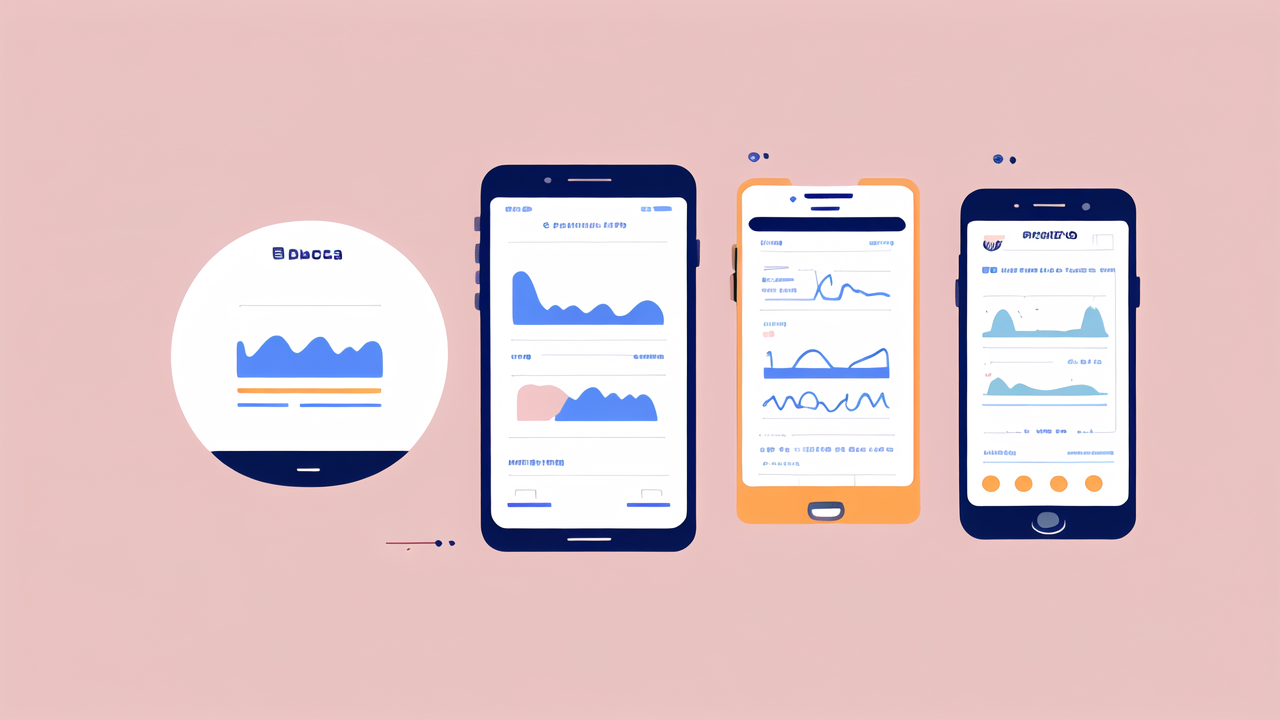The Evolution of Fitness Watches: From Simple Timers to High-Tech Trackers
Understanding the Transformation
Fitness watches have come a long way since their inception. They started as basic timers and step counters. Now, they are advanced devices that track various health metrics. The journey began with simple pedometers. These devices only counted steps. Today's fitness watches are mini-computers on your wrist. They offer a wide range of features and functions. This transformation has changed how we approach fitness and health monitoring.

The evolution was driven by technological advancements. Sensors became smaller and more accurate. Battery life improved significantly. Wireless connectivity became standard. These changes allowed fitness watches to collect and analyze more data. They can now provide insights that were once only available in labs. The transformation has made personal health tracking accessible to everyone.
Key Features that Define Modern Fitness Watches
Modern fitness watches are packed with features that go beyond simple step counting. Here are some key features:
- Heart rate monitoring
- GPS tracking
- Sleep analysis
- Stress level measurement
- Blood oxygen level monitoring
- Workout tracking for multiple sports
- Smart notifications from your phone
- Water resistance for swimming
These features allow users to get a comprehensive view of their health. They can track their fitness progress over time. The data helps users make informed decisions about their lifestyle. It's like having a personal health assistant on your wrist.
The Role of Wearables in Personalized Training
Fitness watches play a crucial role in personalized training. They collect data about your activities and body metrics. This data is then used to create custom workout plans. The watch can suggest exercises based on your fitness level. It can also adjust your plan as you progress. This personalization makes workouts more effective and enjoyable.
Wearables can also motivate users to stay active. They set daily goals and send reminders. They celebrate achievements with virtual badges. Some watches even have built-in coaching features. These can guide you through workouts with on-screen instructions. The role of wearables in training is constantly expanding. They are becoming an essential tool for both amateur and professional athletes.
Enhancing Health and Wellness with Smart Watch Technology
Tracking Daily Activities and Calorie Burn
Smart watches have revolutionized how we track daily activities. They count steps, measure distance traveled, and estimate calories burned. This data helps users understand their activity levels. It encourages them to move more throughout the day. The watches can set personalized goals based on your fitness level.

Many watches now use AI to recognize different activities automatically. They can tell if you're walking, running, or cycling. This feature ensures accurate tracking without manual input. Some advanced models can even detect when you start and stop workouts. This makes tracking seamless and effortless.
Calorie burn estimates are based on your activity level and personal data. The watch considers your age, weight, and heart rate. This provides a more accurate picture of your energy expenditure. Knowing how many calories you burn can help with weight management. It's a valuable tool for those looking to lose, maintain, or gain weight.
Advanced Metrics: Heart Rate, Sleep Quality, and More
Modern fitness watches offer advanced health metrics beyond basic activity tracking. Here are some key advanced features:
- Continuous heart rate monitoring
- Sleep stage analysis (light, deep, REM sleep)
- Stress level tracking
- Blood oxygen saturation (SpO2) measurement
- Menstrual cycle tracking for women
- ECG readings (on some high-end models)
These metrics provide a comprehensive view of your health. Heart rate data can show your fitness progress over time. It can also alert you to potential health issues. Sleep tracking helps you understand your sleep patterns. This can lead to better sleep quality and overall health.
Stress level tracking is a newer feature that's gaining popularity. It uses heart rate variability to estimate stress levels. This can help users manage their stress better. Blood oxygen monitoring is useful for altitude training and detecting sleep apnea. These advanced metrics turn fitness watches into powerful health monitoring tools.
The Importance of Data Accuracy for Health Enthusiasts
Data accuracy is crucial for fitness watch users, especially health enthusiasts. Accurate data ensures that users can make informed decisions about their health. It allows for meaningful tracking of progress over time. Inaccurate data can lead to misguided health choices. It can also diminish the value of the device for users.
Fitness watch makers are constantly working to improve accuracy. They use better sensors and advanced algorithms. Many watches now use multiple sensors to cross-verify data. This improves the reliability of measurements. Some brands also collaborate with medical institutions. This helps validate their devices' accuracy.
Users should understand that fitness watches are not medical devices. They are tools for general health tracking. For precise medical measurements, professional equipment is still necessary. However, for day-to-day health monitoring, modern fitness watches are remarkably accurate. They provide valuable insights that can lead to healthier lifestyles.
Navigating the Market: Top Fitness Watches and Their Capabilities
Comparing Market Leaders: Features that Appeal to Consumers
The fitness watch market is competitive, with several brands offering high-quality devices. Here are some features that consumers look for:

- Accurate heart rate monitoring
- Long battery life
- Water resistance
- GPS tracking
- Sleep analysis
- Stress monitoring
- Compatibility with smartphones
- Stylish design
Top brands like Apple, Garmin, Fitbit, and Samsung lead the market. Each brand has its strengths. Apple Watch excels in smartwatch features and health tracking. Garmin is known for its GPS accuracy and battery life. Fitbit offers user-friendly interfaces and social features. Samsung provides a good balance of fitness and smartwatch capabilities.
Consumers often compare battery life, screen quality, and ecosystem compatibility. Price is also a significant factor. Some prefer specialized fitness trackers. Others want a mix of smartwatch and fitness features. The choice often depends on individual needs and preferences.
Integrating Fitness Watches with Ecosystems and Apps
Fitness watches are most powerful when integrated with broader ecosystems. Many watches connect to smartphone apps and online platforms. This integration allows for deeper data analysis and sharing. Users can view their fitness trends over time. They can set goals and track progress.
Popular ecosystems include:
- Apple Health
- Google Fit
- Garmin Connect
- Fitbit App
- Samsung Health
These platforms often sync with other health and fitness apps. This creates a comprehensive health dashboard. Users can connect their watch data with nutrition apps, for example. Some ecosystems also offer social features. Users can join challenges or share achievements with friends. This adds a fun, motivational aspect to fitness tracking.
Consumer Reviews: What Users Say About Their Fitness Watches
Consumer reviews provide valuable insights into the real-world performance of fitness watches. Many users praise the motivation they get from tracking their activities. They appreciate seeing their progress over time. The ability to monitor heart rate and sleep quality is often highlighted as valuable.
Common positive points in reviews include:
- Improved awareness of daily activity levels
- Motivation to move more and exercise regularly
- Better understanding of sleep patterns
- Useful reminders to stand up and move
- Convenience of notifications on the wrist
Some challenges mentioned in reviews include:
- Battery life concerns, especially with GPS use
- Learning curve for all features
- Accuracy of certain metrics like calorie burn
- Comfort issues for 24/7 wear
Overall, most users find fitness watches to be valuable tools for health and wellness. They appreciate the insights and motivation these devices provide. As technology improves, user satisfaction continues to grow. Fitness watches have become an integral part of many people's health journeys.




Leave a comment
This site is protected by hCaptcha and the hCaptcha Privacy Policy and Terms of Service apply.